Episodes
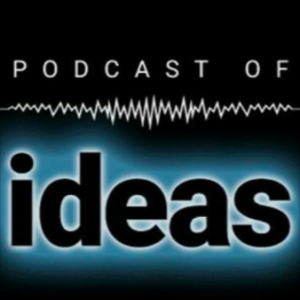
Monday Mar 13, 2023
Gary Lineker: free speech, political debate and impartiality
Monday Mar 13, 2023
Monday Mar 13, 2023
BBC Match of the Day presenter Gary Lineker sparked an enormous row last week after a tweet comparing the government’s language around illegal immigration to 1930s Germany. After he was taken off air, many of his colleagues downed tools in support.
While Lineker may have made up with BBC management for now, the affair has thrown up lots of questions. Should we take Lineker’s comparison seriously? What does the affair say about the current state of free speech in the UK? Are his defenders being opportunistic in defending his right to express his opinions? Is calling for someone you disagree to be ‘cancelled’ ever a legitimate tactic? Is impartiality something worth striving for – and is it even possible? And what have we learned about the way political debate is conducted today?
Alastair Donald, Claire Fox, Ella Whelan and Rob Lyons kick some ideas around.
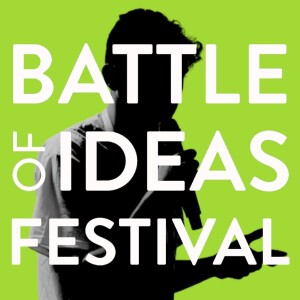
Wednesday Mar 08, 2023
No, Minister! Crisis in the Civil Service
Wednesday Mar 08, 2023
Wednesday Mar 08, 2023
With Sue Gray and Simon Case in the news amid long-running complaints about the effectiveness and impartiality of the government machine, this Battle of Ideas festival 2022 debate seems very topical.
SPEAKERS
Nick Busvine OBEconsultant; founding partner, Herminius Holdings Ltd; advisory board member, Briefings for Britain; Town Councillor, Sevenoaks; former diplomat, Foreign and Commonwealth Office
Caroline Ffiskeco-founder and spokesperson, Conservatives for Women
Eric Kaufmannprofessor of politics, Birkbeck College, University of London; Advisory Council member, Free Speech Union; author, The Political Culture of Young Britain and The Politics of the Culture Wars in Contemporary Britain
Max Wind-Cowieco-author, A Place for Pride; former head, Progressive Conservatism Project, Demos; commentator
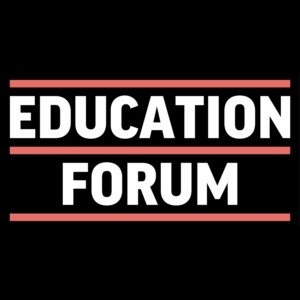
Monday Mar 06, 2023
Should teachers strike during an education crisis?
Monday Mar 06, 2023
Monday Mar 06, 2023
Recording of the Academy of Ideas Education Forum discussion at Accent Study Centre, London on 28 February 2023
INTRODUCTIONFollowing the recent announcement of industrial action by teachers, a Spectator column asked ‘Should teachers really go on strike?’. It argued that teachers are not nearly as enthusiastic about strike action as union leaders claim. While 53% of NEU members in England voted in the ballot, less than 50% of NASUWT members did, meaning the NASUWT ballot failed to meet the legal threshold to strike.
So how widespread is support for the strikes among educators and public, and does public support matter? Some who have traditionally supported the right to strike argue that now is not the time, and that closing schools so soon after the Covid lockdowns, which disrupted education for months and continue to have knock-on effects, is irresponsible.
How do we balance the idea of vocation and public service with the right of teachers to a decent wage and conditions? Would striking during GCSE and A-Level exams, for example, be unacceptable disruption or is causing disruption necessary if workers want to stand up for their rights?
Is a 12% pay claim “fantastical” as government claim or, in a context of more than a decade of longer hours, high inflation and real terms pay cuts, utterly deserved and necessary? With the government’s anti-strike bill moving closer to law, are restrictions on the right of teachers to withdraw their labour justified by the circumstances or do they represent an opportunistic attack on civil liberties?
Join us for this roundtable discussion as we bring together teachers for and against the strike and those undecided, as we explore what it means to be a teacher today.
SPEAKERSConor McCrorysecondary school science teacher, union rep and examiner
Gareth Sturdyformer teacher and union organiser, including a stint as branch president, now writing on the intersection of schools and politics
Gregor Claudeart teacher and former lecturer in cultural theory
CHAIRKevin Rooneyteacher and convenor of Academy of Ideas Education Forum

Friday Mar 03, 2023
Podcast of Ideas: demystifying the deal
Friday Mar 03, 2023
Friday Mar 03, 2023
Alastair Donald and Rob Lyons from the Academy of Ideas are joined by barrister Steven Barrett, Baroness Hoey and Lord Moylan to unpick the Windsor Framework.
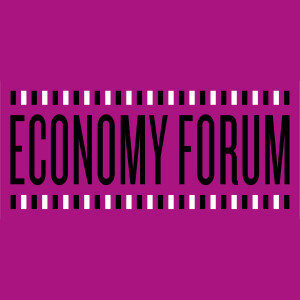
Tuesday Feb 28, 2023
Have Brits fallen out of love with work?
Tuesday Feb 28, 2023
Tuesday Feb 28, 2023
Recording of the Academy of Ideas Economy Forum discussion on Tuesday 21 February 2023. Please note that this event was recorded via Zoom and there are occasional, short-lived issues with the audio.
INTRODUCTIONThe Covid pandemic created huge disruption to the UK labour market. Millions of people were forced to stop working, with most receiving furlough payments. Millions more had to work from home. With lockdowns and pandemic-related business closures in the past, what has been the lasting impact of this disruption?
Statistics for employment and earnings published by the Office for National Statistics (ONS) for September to November 2022 show that unemployment remains low (3.7 per cent) while the proportion of people aged 16 to 64 in employment continues to hover around 75 per cent. But the number of people defined as ‘economically inactive’ – not working or seeking work – in this age group grew markedly over the course of the Covid pandemic and in its aftermath. Meanwhile, job vacancies for October to December 2022 remained well over one million, although the vacancy rate has started to decline.
As the Spectator noted in November 2022, ‘more than 20 per cent of working-age Brits are economically inactive, meaning they are neither in work nor looking for it. More than five million are claiming out-of-work benefits.’ Yet this exists alongside widespread staff shortages.
Meanwhile, unprecedented numbers of doctors, nurses and teachers are threatening to leave their jobs due to burnout. Although the unions lay the blame for this on low pay and poor working conditions, it co-exists with an oft-remarked decline in the quality of public service.
Is this a temporary phenomenon that will subside as the impact of the pandemic fades or an acceleration of existing trends? Have many people used the lockdowns as a moment to reflect about their attitude to work – and decided that if they can afford not to work, they won’t? What impact will rising living costs have on these trends? What is the impact on the UK economy of having so many working-age people not working?
SPEAKERLinda Murdoch is a researcher on well-being and the work ethic. She is also former director of careers at the University of Glasgow.
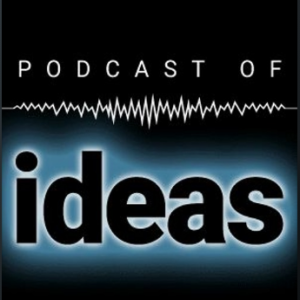
Friday Feb 24, 2023
Podcast of Ideas: Frank Furedi on the Ukraine War first anniversary
Friday Feb 24, 2023
Friday Feb 24, 2023
One year on from the Russian invasion of Ukraine, Professor Frank Furedi talks to Rob Lyons about where things stand today, the causes of the conflict and the potential for peace.
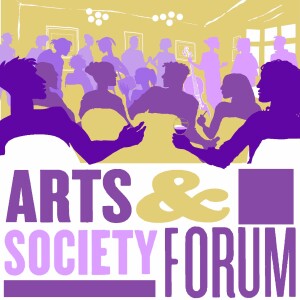
Wednesday Feb 15, 2023
What does 2023 hold for the arts?
Wednesday Feb 15, 2023
Wednesday Feb 15, 2023
This is a recording of a public discussion hosted by the Academy of Ideas Arts & Society Forum on 24 January 2023.
Arts institutions shape themselves and their policies around promoting social good, and have accepted a political agenda around climate change and identity politics. They want to be seen to be on the ‘right side’ of progress, but have they become overly instrumentalist and constraining in their approach? What harm are they doing to the development of the arts and artists?
Now it appears that the arts are responding not just to the equity, diversity and inclusion (EDI) agenda, but also to the government’s levelling up policy. Under pressure to take funding outside London, controversial recent Arts Council plans threaten English National Opera with closure unless it relocates to the north.
Yet it seems that progressive arts polices have largely failed. Recent research shows that while a few women and BAME people are now more likely to achieve higher status professional roles than in the past, there are fewer people from working class backgrounds involved in the arts than in the 1970s.
How can we argue for a renewed discussion about artistic merit? What remains of the idea of art as a source and expression of beauty? Contemporary arts now often seem to be judged primarily on the basis of who they represent and their political message, on what ‘good’ they might do in society. In theatre, music and visual arts, artists and artistic projects run the risk of crossing a line if they are not politically and socially ‘on message’. And is instrumentalism (political and social) now embedded in the way most people, perhaps particularly younger generations, think about the arts? What kind of arts institutions do we need?
SPEAKERSAlexander Adamsartist, critic and author. His publications include Abolish the Arts Council (co-authored with David Lee) and Culture War (Alexander’s latest publications will be avilable to buy at the event)
Dr Mo Lovattnational coordinator of Debating Matters; programme coordinator, Academy of Ideas
Jack Huessinger, Wang Chung; composer; musician; songwriter

Saturday Jan 21, 2023
Is the Government right to veto Sturgeon’s self-id bill?
Saturday Jan 21, 2023
Saturday Jan 21, 2023
The UK Government’s decision to veto a bill passed by the Scottish Government, which would make it easier for children older than 16 to legally change their gender, has set off something of a political storm (a great summary can be found over at Spectator by Iain MacWhirter).
Whilst this certainly has ramifications for UK-Scotland political relations, it also has set off a series of debates about gender identity, the rights of women, and even what the bill actually would mean in practice.
Without a doubt, these debates are some of the most difficult to navigate in contemporary politics - and also some of the most heated. So we sat down to try and make sense of it all.
On this episode of the Podcast of Ideas, Alastair Donald speaks to Susan Smith of For Women Scotland - the heroic campaigning organisation who have been defending the rights of women which are often undercut by legislation aiming to protect trans people. Claire Fox, Ella Whelan and Rob Lyons then join Alastair to mull over some of the implications in a bit more detail.


